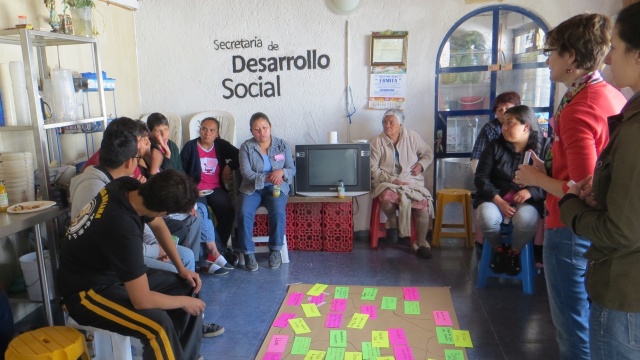
The Dynamics of Multi-Scalar Adaptation in Megacities: Autonomous Action, Institutional Change and Social Hydrological Risk in Mexico City (Institute of Ecology)
MEGADAPT addresses the challenge of reducing vulnerability to increased flooding, chronic water scarcity, and associated health outcomes under a changing climate in Mexico City, one of the world’s largest metropolitan areas. Residents, businesses and public agencies in megacities respond to the impact of flooding, scarcity and health outcomes in disparate and often uncoordinated ways across the metropolitan area. Through their modifications of infrastructure and land use, their responses impact the hydro-climatic system, ultimately exacerbating or ameliorating hazardous conditions.
To capture these complex interactions and feedbacks, this international and transdisciplinary project produces an integrated dynamic model – MEGADAPT – for use in Mexico City, but with potential applicability to climate risk adaptation in complex urban environments across the globe. The project explores how different scenarios of climatic extremes, urban planning, and water management combine with dispersed actions of specific populations in response to vulnerability to produce cross-scalar feedbacks that alter the distribution of vulnerability in the megacity. We are working in partnership with residents of vulnerable neighborhoods to understand current adaptation and coping strategies and with the city’s water management authorities to understand decision-criteria for water management and investment priorities. As a decision-support tool, MEGADAPT will allow decision-makers to explore how altering risk management priorities or the geographic focus of interventions affect social equity and overall risk outcomes.
ASU Program Owner(s)
Associate Professor, School of Sustainability
Mexican Program Partner(s)